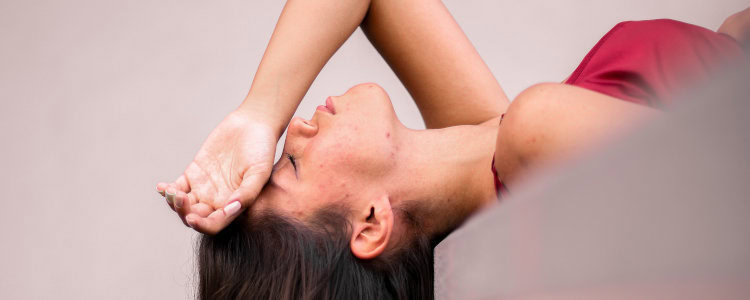In This Article
- What Are Weed Shakes?
- How Long Do Weed Shakes Last?
- What Causes Weed Shakes?
- What to Do in Case of Weed Shakes
- How Do You Stop Weed Shakes from Happening?
- When to See a Doctor
- Are there any strains more prone to causing weed shakes?
- What cannabis consumption methods are more likely to cause it?
- What age is more susceptible to weed shakes?
- Is CBD really effective at minimizing weed shakes?
- Can bad or expired cannabis cause weed shakes?
- Does moldy weed cause shaking?
- References
Weed shakes refer to involuntary muscle tremors or shivering that some individuals experience after consuming cannabis, particularly in high doses. While they can be unsettling, understanding their causes and how to minimize the effects can help you have a more comfortable experience.
This article is not intended to be medical advice. Instead, the following information shares currently available evidence for patients to consider if experiencing what are known as “marijuana shakes”. If you’re ever concerned about your health or wellness, consider reaching out to a medical professional.
What Are Weed Shakes?
Everyone has a different reaction to cannabis. For some, shaking and tremors are simply one of the effects of the plant. And while this side effect is relatively uncommon, it can be distressing, especially the first time it occurs.
Weed shakes can look different in everyone. Some users experience minor twitching that may even be hard to notice. In other cases, individuals can have more severe shaking and involuntary muscle movements.
People taking a higher dose of cannabis than they’ve ever had before are more likely to experience weed shakes. It’s rare to experience weed shakes with low doses of cannabis, but it’s still possible. Shaking from cannabis can present differently in everyone, but there are some commonly asked questions we’ll attempt to answer in the rest of this article.
How Long Do Weed Shakes Last?

A person’s individual biology, as well as how much weed they’ve consumed, can impact how long weed shakes last. There hasn’t been specific research that’s examined how long weed shakes last. If you’ve smoked, then shakes can sometimes last for around thirty minutes. If you’ve taken edibles, the shakes may last for longer (as it’ll take longer for the THC to circle out of your system).
There are differences in severity when it comes to weed shakes. Some may experience tremors in only one part of their body, while others will have side effects that are more comprehensive.
It’s important to remember just how uncommon weed shakes are. Most people never experience this side effect. And while it’s not possible to guarantee a specific reaction to cannabis, most people stop experiencing “marijuana shakes” once they cease cannabis use.
What Causes Weed Shakes?

Several factors can contribute to weed shakes. Overconsumption of THC, low blood sugar levels, anxiety, cold environments, and an individual's biology can all play a role. Recognizing these triggers can assist some in adjusting habits to reduce the likelihood of shakes.
Cold weather is a common cause of weed shakes, especially because cannabis can lower body temperature by itself.1 If you’re prone to weed shakes, consider consuming in a warmer location.
Consuming a high level of THC is another common cause of weed shakes. It’s important to keep in mind that a “high” level is different for everyone. However, if you’re taking double the amount you normally would, you’re more likely to experience tremors.
Overstimulation is another factor that can increase the chance for weed shakes. If you sometimes feel anxious when consuming cannabis, you may also experience weed shakes.2 Finding ways to reduce anxiety and overstimulation, as well as reducing the dose you take, may help alleviate unwanted shaking.
Crossfading can be extremely strenuous on the body.3 If you’re consuming both alcohol and cannabis at the same time, you may be more likely to experience weed shakes.
Low blood sugar levels can also lead to weed shakes, which is one of the reasons why it’s often recommended to eat before using cannabis. Because cannabis has the ability to worsen both low and high blood sugar levels, it’s best to make sure that your blood sugar is in a healthy range before you consume cannabis.4
If you’ve experienced weed shakes in the past, you may want to narrow down the cause so you can prevent them in the future. This can be challenging, especially because everyone has different reactions and there are so many possible causes. In general, it’s best to consider your overall health and wellness, how much THC you are consuming, and the environment.
What to Do in Case of Weed Shakes

If you’ve experienced weed shakes, then you’re probably wondering what you can do about them. There are practical tips that you can use if you experience weed shakes in the future.
One of the best things you can do to wait out weed shakes is sleep off your high. Going to bed is a good way to combat negative side effects of cannabis, especially if you’ve used a strain that aids relaxation.
If you believe low blood sugar is contributing to weed shakes, eating a snack can help get your blood sugar back to a healthy level and, therefore, aid in managing shakes.
Regardless of the cause, it’s important to take it easy and not do anything that could potentially be dangerous when experiencing “marijuana shakes”. Stay away from driving, avoid heights and risky environments, and stop using other unnecessary substances (like alcohol) to make sure that you’re staying as safe as possible.
How Do You Stop Weed Shakes from Happening?

While weed shakes are generally harmless and temporary, they can be uncomfortable. To reduce the risk of tremors:
- Consume cannabis responsibly.
- Stay warm, especially while consuming.
- Maintain stable blood sugar levels.
- Be mindful of your environment.
If symptoms persist, consult a healthcare professional.
Eating a healthy snack before you use cannabis can be a good way to make sure that your blood sugar is at an optimal level. Low blood sugar is a leading cause of weed shakes, so making sure that you’ve eaten is a good way to combat this problem.
Think about the temperature of the space you’re in. Are you outside where there’s a breeze? Is your air conditioner set to the highest setting? Controlling the temperature of the space you’re in is a good way to prevent weed shakes that may arise due to low body temperature.
One of the best ways to prevent weed shakes is staying away from using other substances while using cannabis. While some people do enjoy the effects that can come from consuming both cannabis and alcohol, it can produce complicated results and overwhelming effects.
Because smoked cannabis leaves your system faster than edibles, it’s likely that weed shakes from smoking will be shorter than those from edibles. However, dosage is one of the most important factors to consider. As with other forms of cannabis consumption, start with a lower dose and only increase over time.
Another great way to prevent weed shakes is to go into your experience with a positive mindset. If you’re experiencing lots of anxiety or panic before smoking, you may be more likely to get weed shakes. Using cannabis when you’re in a good headspace can help prevent negative effects and make sure that you have the best experience possible.
When to See a Doctor
If you’ve experienced weed shakes in the past, you may wonder when it’s time to see a doctor. In general, it’s recommended to speak to your doctor if you have any health concerns. If your tremors last longer than usual or if they’re more severe than they have been in the past,it might be time to see a doctor to rule out other health factors.
Are there any strains more prone to causing weed shakes?
Strains that have higher percentages of THC are more likely to cause weed shakes. If you’ve experienced weed shakes in the past, consider opting for a different strain or product in the future.
What cannabis consumption methods are more likely to cause it?
While no method of consumption is more or less likely to cause weed shakes, shakes that are from edibles may last longer than those from smoking. This is because edibles stay in your system for longer.
What age is more susceptible to weed shakes?
Overall health and wellness, as well as dosage, matter more when it comes to weed shakes than age does.
Is CBD really effective at minimizing weed shakes?
It’s possible that CBD could minimize weed shakes as it has shown some promise in helping minimize the effects of THC. However, there hasn’t been specific research to back this up. In either case, it’s considered very unlikely that CBD would worsen weed shakes, so it’s an option that you can consider in the future. If you’re going to try using CBD to offset “marijuana shakes”, consider starting with a lower dose of CBD and seeing how that impacts you before increasing the amount you take.
Can bad or expired cannabis cause weed shakes?
While there hasn’t been significant research that’s aimed to understand the effects of expired cannabis, it’s possible that bad or expired cannabis could cause weed shakes. It’s a good rule of thumb to never use expired cannabis, and weed shakes are one of those reasons not to.
Does moldy weed cause shaking?
Moldy weed is not safe to consume. Studies haven’t directly linked moldy cannabis to experiencing weed shakes, but it may be a factor.
References
1. Hanna, J. M., R. H. Strauss, B. Itagaki, W. J. Kwon, R. Stanyon, J. Bindon, and S. K. Hong. 1976. “Marijuana Smoking and Cold Tolerance in Man.” Aviation, Space, and Environmental Medicine 47 (6): 634–39. https://pubmed.ncbi.nlm.nih.gov/779756/#:~:text=Smoking%20marijuana%20did%20not%20greatly.
2. Sharpe, Lara, Justin Sinclair, Andrew Kramer, Michael de Manincor, and Jerome Sarris. 2020. “Cannabis, a Cause for Anxiety? A Critical Appraisal of the Anxiogenic and Anxiolytic Properties.” Journal of Translational Medicine 18 (1). https://doi.org/10.1186/s12967-020-02518-2.
3. Patrick, Megan, and Christine Lee. 2018. “Cross-Faded: Young Adults’ Language of Being Simultaneously Drunk and High.” Cannabis 1 (2): 60–65. https://doi.org/10.26828/cannabis.2018.02.006.
4. Penner, Elizabeth A., Hannah Buettner, and Murray A. Mittleman. 2013. “The Impact of Marijuana Use on Glucose, Insulin, and Insulin Resistance among US Adults.” The American Journal of Medicine 126 (7): 583–89. https://doi.org/10.1016/j.amjmed.2013.03.002.
The information in this article and any included images or charts are for educational purposes only. This information is neither a substitute for, nor does it replace, professional legal advice or medical advice, diagnosis, or treatment. If you have any concerns or questions about laws, regulations, or your health, you should always consult with an attorney, physician or other licensed professional.




